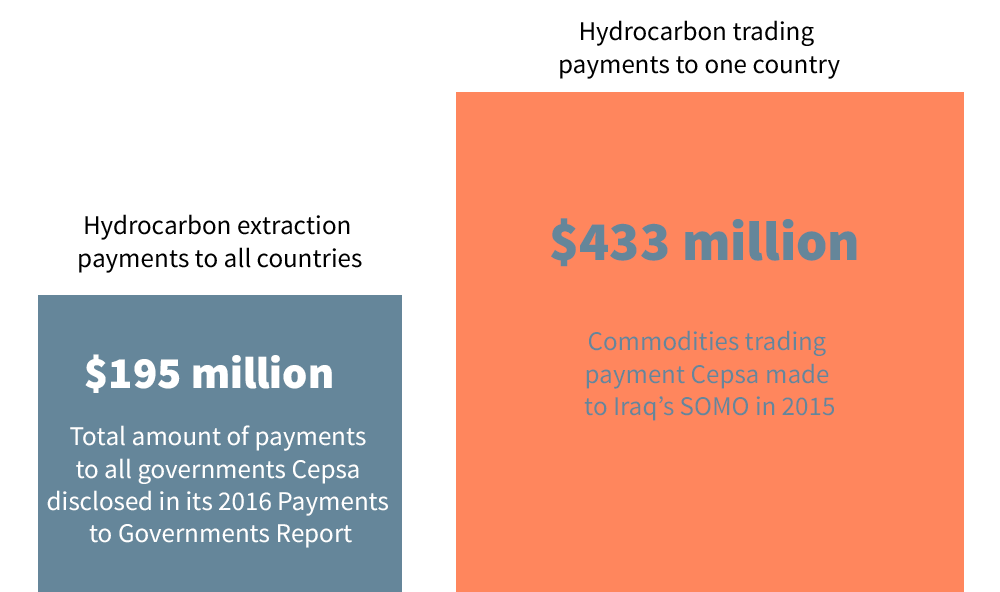
Spanish Energy Giant’s Iraq Payments Highlight Commodities Trading Transparency Gap
A central aim of “mandatory disclosure” laws in the EU, Canada and Norway is to enable citizens in developing, resource-rich countries to scrutinize payments companies make to government entities in exchange for oil, gas and minerals. These laws have brought unprecedented levels of payment data into the public domain. At the time of writing, ResourceProjects.org covers over USD 182 billion in company payments to government entities in 124 countries.
Given the legislations’ objective, it is strange that commodities trading payments—often the largest payments companies make to government entities—are not covered by these mandatory disclosure laws. The laws apply only to companies that physically engage in extraction of resources.
Commodities trading payments are the revenues countries receive for the direct purchase of their physical oil and gas. These commodities trading payments are often made by traders who are not engaged in the extraction of these resources.
Cepsa, a Spanish company with extraction, refining and commodities trading divisions, provides an interesting example of this transparency-opacity dichotomy. Cepsa’s 2016 Payments to Governments Report shows it disclosed extraction payments (such as taxes, license fees and royalties) of EUR 178 million (USD 195 million) to government entities in six countries in 2016.
By comparison, Iraq’s Extractive Industries Transparency Initiative (EITI) report shows that in 2015 the country’s State Organization for Marketing of Oil (SOMO) received more than two times that (USD 433 million) from Cepsa’s trading operation for the sale of oil:

The comparatively large payment was to just one country’s government. Due to the current lack of commodities trading transparency, we have no way of knowing how much Cepsa’s trading arm may have paid to national oil companies in other resource-rich countries.
Similarly, in 2016, Cepsa was granted a crude oil term contract by Nigeria’s state-owned oil company NNPC which allowed the Spanish company to purchase up to 60,000 barrels per day (bpd). There is no way of knowing how much of this 60,000 bpd allocation Cepsa actually purchased, or at what price. However, if we use the 2016 average oil price reported by NNPC for 2016 (USD 54.09), this crude oil allocation could have been worth up to USD 1.2 billion.
In 2016, the governments of the U.K. and Switzerland, two leading commodity trading hubs, committed to increasing transparency in this area, but to date neither country has a law mandating the disclosure of these payments. As the U.K. reviews its mandatory disclosure regulations and Switzerland considers developing a similar law, officials of both governments should remember the size and importance of these commodities trading payments, and expose them to the same scrutiny that other extractive activity payments receive.
Alex Malden is a governance associate with the Natural Resource Governance Institute (NRGI).
